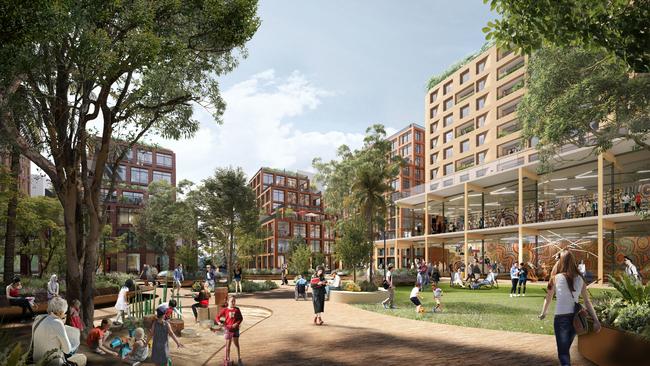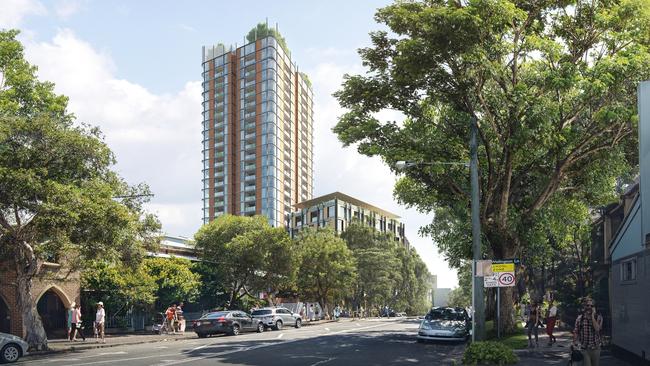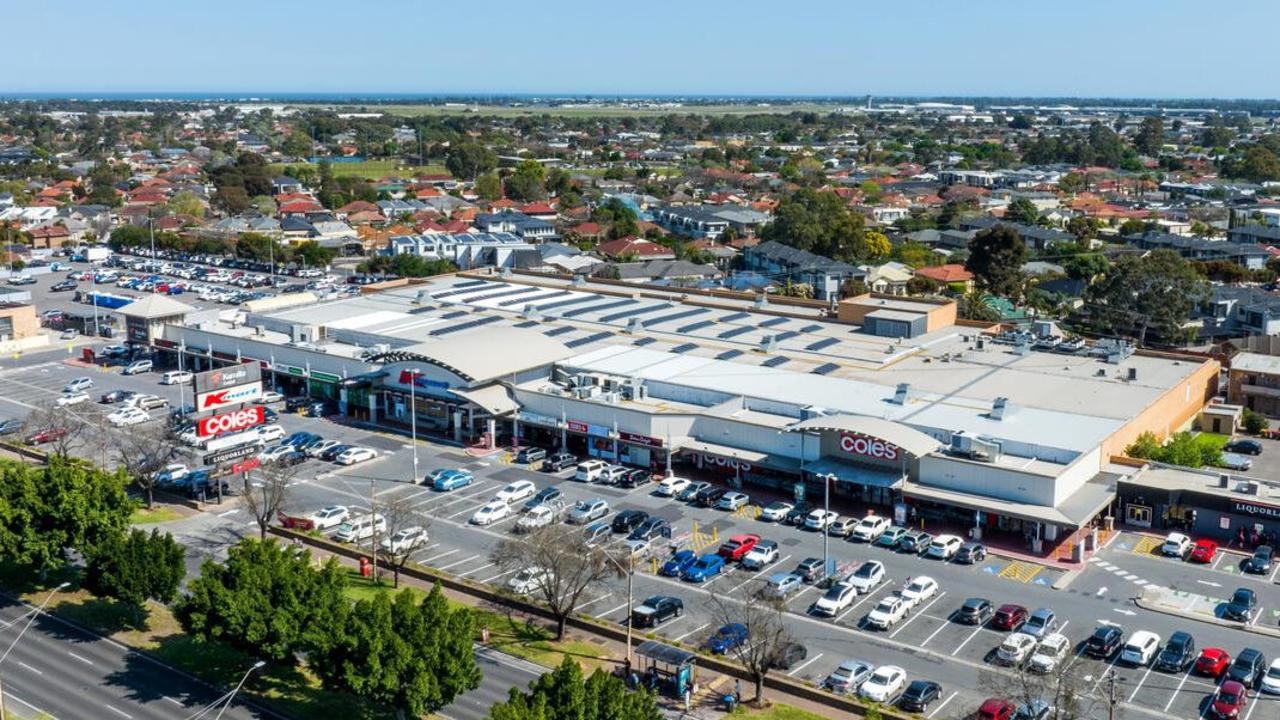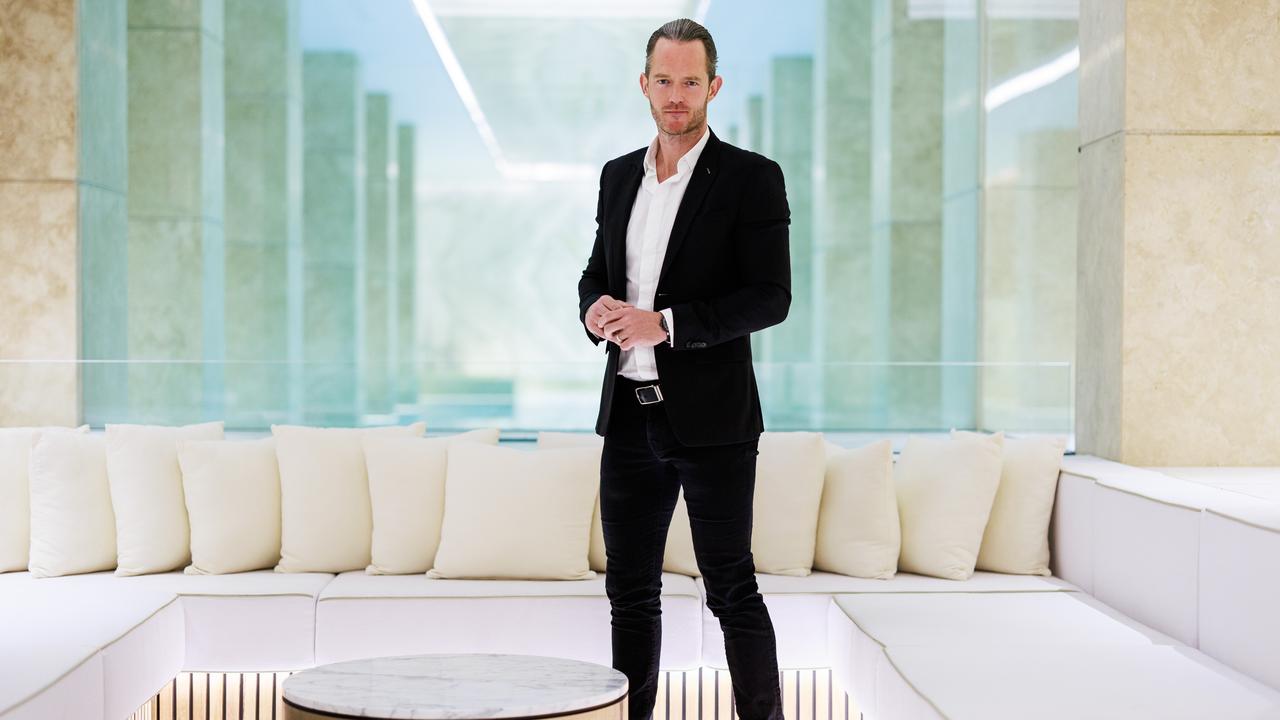Stockland back in the apartment business with Waterloo Estate win
The job will see the listed group forge back into developing apartments – at the expense of embattled rival Lendlease.

Heavyweight property developer Stockland has won the race to develop Sydney’s multibillion-dollar Waterloo Estate housing project, nudging out a rival consortium led by Lendlease.
The massive job will see the 1970s public housing estate revamped as an apartment precinct that will become a key part of the city’s response to the housing crisis due to its huge scale.
It also represents Stockland’s return to the apartment market under chief executive Tarun Gupta, who was previously at Lendlease, which has a strong apartments business and is pushing back into the local market after heavy losses overseas.
Stockland is in a consortium with Link Wentworth, City West Housing and Birribee Housing, and was confirmed as the preferred proponent to deliver the Waterloo Renewal Project with Homes NSW.
The Waterloo Renewal Project is one of the country’s largest inner city renewal initiatives, with plans for a mixed tenure community of more than 3000 apartments, including 50 per cent social and affordable housing. The project is expected to be developed over multiple stages with works to kick off in 2027 and could be a model for overhauling other sites.
Mr Gupta said Stockland would deliver the critical renewal project for Sydney’s inner city. “Building on our 72-year legacy as a leading creator and curator of connected communities, we look forward to working with Homes NSW, our partners and the community to deliver vibrant and inclusive spaces, with high quality homes for all the residents.”
Last December, The Australian reported that the race to develop the ageing estate had narrowed to a contest between consortia led by Stockland and Lendlease.
Mirvac and Singapore-backed Frasers were also initially short-listed.

Large developers are pushing deeper into projects that have a mix of private units and affordable and social housing, as governments scramble for solutions to the worsening housing crisis. The model is more common overseas but is being taken up in Australia, partly to house pressed social tenants but also to spark development at a time when new launches are down and some developers have been hit by rising costs.
Social housing advocates have raised concerns about how the redevelopment plans will mean 1000 tenants must move out, at a time of accommodation shortages. But in August last year, the government boosted the number of social and affordable homes in the first stage of development at Waterloo South to 50 per cent.
Citi analysts estimated the project value between $2-3bn and put potential profits at $300-$600m, based on margins for similar developments.
“Given the project scale, we believe capital partnering may be appropriate and will mean lower earnings contribution, but lower capital at risk,” they said.
Citi said the project marked Stockland’s entry into the apartment market, which differed from the house and land business, creating additional risk. But it pointed to the strong demand backdrop driven by population growth and housing undersupply.
It cautioned that higher construction costs would be a challenge as they had hit margins for high rise developers. But also said that construction cost pressures could start to ease.
Morgan Stanley analysts said Stockland would derive profits from the 1500 build-to-sell lots which could have an end value of about $2.2bn, as well as development fees on the affordable housing, which would be on sold to its partners. The social housing will be delivered to the government in lieu of land payments for the entire project.






To join the conversation, please log in. Don't have an account? Register
Join the conversation, you are commenting as Logout